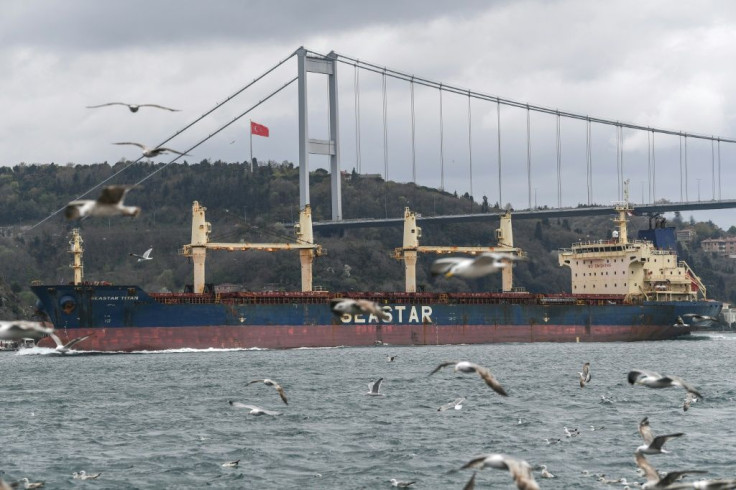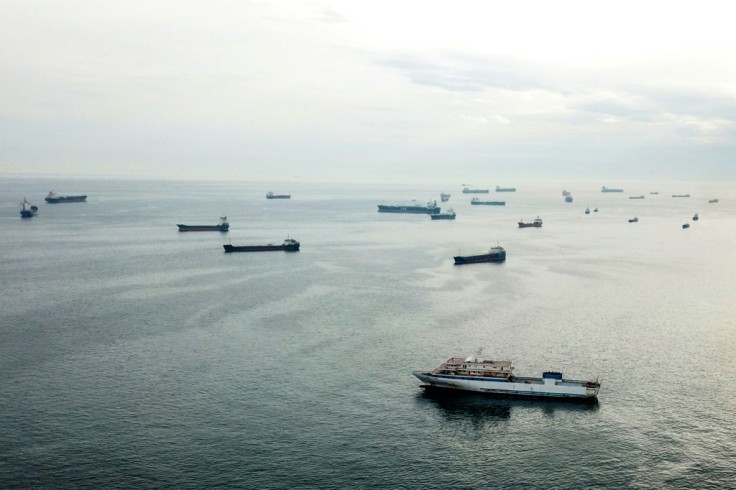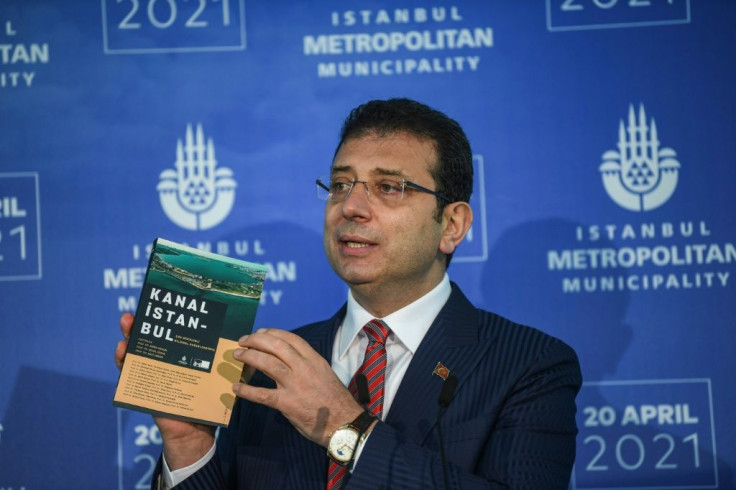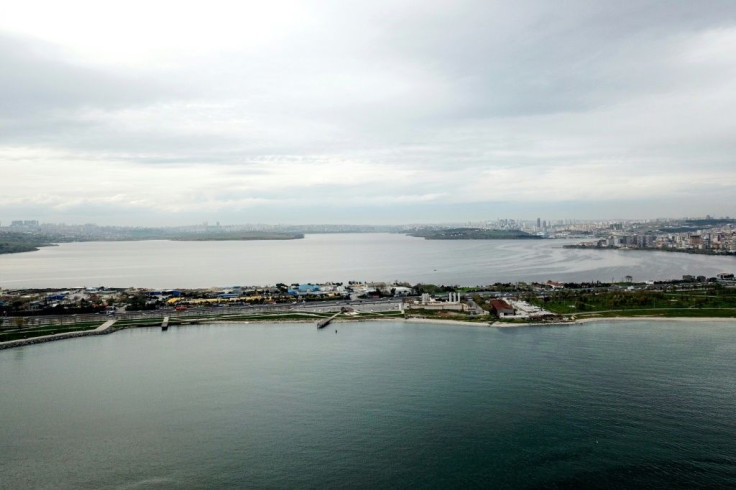Erdogan Riles Critics, Russia With 'Crazy' New Canal
Not content with shaping Turkey's history, President Recep Tayyip Erdogan is about to change its geography, too, by building an alternative to the Bosphorus, raising hackles at home and alarm in Russia.
Critics accuse Erdogan of pursuing a vanity project that will open up Istanbul to unbridled construction and put the government into deep and largely unnecessary debt.
Environmentalists hate it, as does the Kremlin, which fears that Erdogan's Canal Istanbul will give NATO member Turkey broader control over passage between the Black and Mediterranean seas.
A group of Turkish retired admirals even risked Erdogan's wrath by warning that he must place his new canal under the terms of an old treaty regulating the use of strategic straits.

But the mercurial Turkish leader, whose 18-year rule saw him span the Bosphorus with towering bridges and build a sprawling airport on a remote patch by the Black Sea, says his canal "will breathe new life into the region".
"Whether you like it or not, we are starting and we will build it," Erdogan said earlier this month.
Anthony Skinner, of Britain's Verisk Maplecroft risk consultancy, said the canal was "the jewel in the crown" of what Erdogan gleefully calls his "crazy projects".
"The realisation of the project would represent a crowning moment in Erdogan's rags-to-riches story," Skinner told AFP.

"The boy from the wrong side of the tracks in Istanbul registering unprecedented success as a politician, becoming mayor of Istanbul, prime minister and then president with full executive powers: a president who changed the shape of Turkey's beating heart -- Istanbul."
Erdogan's dreams do not come cheap.
A 2019 environmental impact study estimated the 45-kilometre (28-mile) waterway's cost at 75 billion liras ($13 billion at the time).

It will cut through land to the west of Istanbul that was once envisioned as an evacuation zone in case a major earthquake hits the megapolis of 15.5 million people, which sits on an active fault.
Funding for the project due to kick off in June is unclear.
Plans for a model under which rich investors -- possibly from China -- get temporary ownership rights are complicated by geopolitical and environmental considerations.
The most fervent critic of all is Istanbul Mayor Ekrem Imamoglu, who won Turkey's biggest and most fabled city for the main opposition CHP party in a controversy-laden election in 2019.

Speaking to foreign media, Imamoglu said property around the canal has been awarded to Erdogan's political allies in the construction and real estate sectors and his municipality has been left out of the process.
"Let me put it bluntly: the primary reason behind Erdogan's motivation is money, money, money," Imamoglu said.
The canal's biggest foreign critic is Russia, which fears that Erdogan is building a new way for NATO warships to enter the Black Sea, where the Kremlin annexed Ukraine's Crimea peninsula in 2014.
Moscow and the retired Turkish admirals are pressing Erdogan to put the new canal under the terms of the 1936 Montreux Convention, which sets strict terms on passage through the Bosphorus and Dardanelles straits.
Erdogan has accused the retired navy commanders of eyeing a coup and is giving every indication that he intends to put the canal outside the treaty's scope.
"The Canal Istanbul, which has nothing to do with the Montreux Convention, will bring Turkey greater comfort and peace," Erdogan said earlier this month.
Atilla Yesilada, a Turkey specialist at the Global Source Partners research firm in New York, said Erdogan might see the new canal as a means to negotiate better relations with Washington.
"It is possible that Erdogan is contemplating to trade off free passage for NATO ships to the Black Sea for (relief from) sanctions," which Washington has slapped on Turkey for its purchase of Russian arms, Yesilada told AFP.
Not placing the new canal under the old treaty could also let Turkey charge commercial ships fees for quicker passage than they might otherwise get through the Bosphorus, where the wait for free access can last weeks.
"It is certainly true that the Bosphorus is very narrow and an accident waiting to happen because of heavy maritime traffic," Yesilada said.
"If Erdogan can declare Canal Istanbul exempt from Montreux, Turkey could use delaying tactics, like lengthy inspections (in the Bosphorus) to channel ships to the canal."
But both Skinner and Yesilada said using the canal as leverage risked creating serious problems with Russia.
The Kremlin said President Vladimir Putin "emphasised the importance" of preserving the 1936 pact in a call with Erdogan this month.
"At the end, I don't see any leverage to be gained by Turkey, but simply more regional trouble," Yesilada said.
© Copyright AFP 2024. All rights reserved.





















